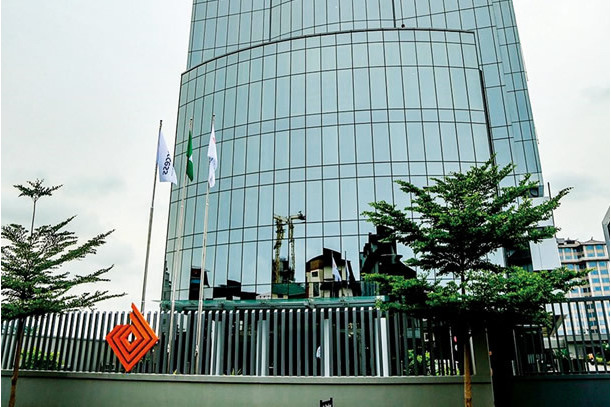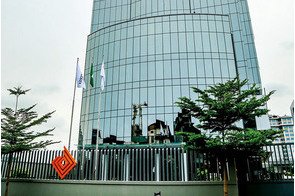Strengthening the three most important socio-economic pillars

Summary
Strategic focus needs to be placed on the three pillars that have the ability to have a massive, positive impact on the economy, namely education, employment, and health.
Extreme poverty is one of the major challenges that Nigeria has been trying to tackle for several decades. Between 1990 and 2015, when the United Nations recorded a drastic decrease in the global poverty rate, from 36 percent to 10 percent, Nigeria experienced a reverse trend. In 2010, the National Bureau of Statistics (NBS) said 60.9 percent of Nigerians were living in “absolute” poverty, a spike from the 54.7 percent recorded in 2004.
With the advent of the Covid-19 pandemic, many more Nigerians have fallen below the poverty line. The pandemic has exacerbated pre-existing harsh economic conditions and plunged the nation into one of its worst economic climates since her independence. The World Bank had predicted in its Poverty and Equity Brief in 2020 that an additional 10 million Nigerians were in danger of falling below the poverty line as a result of the pandemic and population growth.
To change the trajectory of rising poverty in the country, and ensure upward economic mobility for Nigerians, strategic focus needs to be placed on the three pillars that have the ability to have a massive, positive impact on the economy, namely education, employment, and health.
The connection between health and economic growth has long been established. Countries with weak health institution and infrastructure find it harder to achieve sustained economic growth. The World Health Organisation (WHO) postulates that a 10-year increase in the average life expectancy at birth in a country will positively impact the economy by raising the national economic output by 0.3 – 0.4 percent annually. Knowing this, the government has been working to strengthen the country’s health sector.
Given this context, the current administration launched the 2019 Health Sector Next Level Agenda, with the program aimed at implementing a mandatory universal health insurance. The program also aimed at operationalising the Basic Health Care Provision Fund (BHCPF), recruiting and deploying 50,000 community health extension workers, and revamping federal teaching hospitals across the country, amongst others.
Since the launch of the nine-point agenda, Nigeria’s immunisation coverage has increased significantly, and the country achieved polio-free status in August 2020. In the wake of the outbreak of SARS-CoV-2, over 220,000 health workers and community volunteers have been trained to flatten the Covid-19 infection curve. The country, once again, proved its ability to control disease outbreaks as seen with Ebola in 2014.
As important as these strides in public health provisioning are, the country’s rapid demographic growth necessitates interventions from individuals and public and private institutions if significant progress would be made across the healthcare system. Thankfully, some proactive organisations are rising up to address the challenge. Amongst these institutions is Africa’s largest retail bank: Access Bank Plc.
Access Bank has since the outbreak of the Covid-19 pandemic provided over 4,000 essential kits to sickle cell patients and people living with disabilities. The Bank has trained over 642 birth attendants to reduce maternal mortality rate in Nigeria, promoted over 62,300 safe births, and singlehandedly donated $2,497,939 to aid the fight against the pandemic. And alongside other members of the Private Sector Coalition Against Covid-19 (CACOVID), $87,427,872 has also been raised to combat the viral disease.
Solving the country’s health challenges is crucial to tackling poverty but it is not the only requirement. For sustainable economic recovery, and for the country to cast off the toga of the “poverty capital of the world”, it is crucial that there is an increase in the literacy and skills development rate. The Oxford Poverty and Human Development Initiative’s 2018 Global Multidimensional Poverty Index showed that the poorest parts of Nigeria are those with the worst education index. Again, thankfully, several governmental bodies and private institutions have increased investment of resources towards improving literacy and skills development in the country.
Given the connection between upskilling and employability, interventions to increase the availability of skilled labour among the populace will impact another pillar that is crucial to eradicating poverty – employment. According to the NBS, the unemployment rate in Q4 2020 was 33.3 percent, while underemployment rate stood at 22.8 percent
The Federal Government has reiterated its commitment to eradicate poverty in the country through its ongoing National Micro Small and Medium Enterprises (NMSME) Clinics, in collaboration with Access Bank and other corporate institutions. The Regional Sales Director, Southeast Nigeria, Access Bank Plc., Charles Oguibe, was quoted as saying that “it has been the desire of Access Bank to assist small and medium scale businesses in the country, we have always been at the forefront and we are glad working in collaboration with the office of the Vice President to drive the agenda of empowerment and, ultimately, poverty eradication.”
Beyond the three pillars of education, healthcare and employment in fighting poverty, a relatively new factor has grown in its impact. Experts agree that any viable solution to poverty must include climate change mitigation and adaptation. Climate change is worsening poverty levels in Africa due to severely limited capacity for mitigation and adaptation. The WHO projects that between 2030 and 2050, climate change is expected to be responsible for approximately 250,000 extra deaths due to malnutrition, malaria, diarrhea, and heat stress. The rural poor count on natural resources, such as forests and lakes, for their source of livelihood. However, extreme weather conditions are wreaking havoc on these national resources.
While seeking ways to alleviate poverty, it is important for governmental and private sector institutions to implement environmental protection initiatives alongside other economic sustainability schemes.
There are still many hurdles to scale and milestones to achieve in eradicating poverty in Nigeria. However, the collaborative approach that private- and government-led institutions are adopting gives cause for optimism that extreme poverty in the country will inevitably start to reduce, and sustained commitment will see the rise of a prosperous Nigeria.
Access Bank Sustainability Unit is responsible for driving sustainability at the bank.
Related
-
Kuwaiti fund for African Development opens call for nominations
The $1 million Al-Sumait Prize rewards innovative and inspiring initiatives and research.
-
Eliminating inequality as a sustainable development challenge in Africa
Access Bank remains a pioneer in the ideation and execution of several sustainability drivers that foster equity and aim at ...
-
Nigeria among worst-performing nations on World Bank's Human Capital Index
The Human Capital Index measures how much countries lose in economic productivity by underinvesting in their people.







